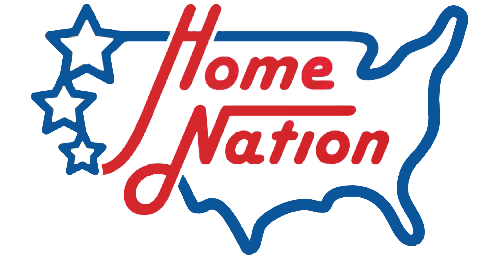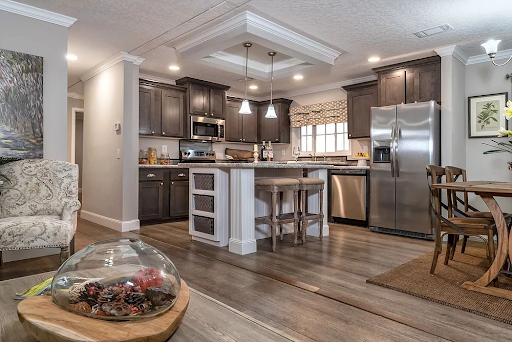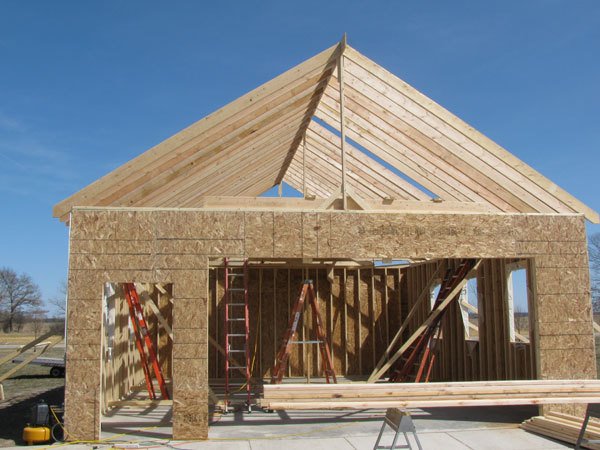by Home Nation • Published Jan 5th, 2024

Imagine navigating the challenge of finding a mobile home that not only meets your aesthetic preferences but also addresses your unique accessibility needs. If you're a wheelchair user or have mobility issues, standard mobile home designs often fall short of offering the comfort and ease you deserve. The quest for a handicap-accessible mobile home requires more than just aesthetic considerations; it demands a keen eye for functional details and adaptive features.
In your search, understanding what makes a mobile home accessible is critical. Each element is crucial in creating a comfortable and independent living space, from wide doorways to customized kitchen layouts.
Keep reading to discover the essential features that define a handicap-accessible mobile home, and learn how to find a space that accommodates and enhances your lifestyle. Let's delve into the world of mobile homes where functionality, comfort, and accessibility converge, ensuring that your living space truly reflects your needs and desires.
Ready to turn your dream of an accessible home into reality? Learn and Discover your ideal handicap-accessible mobile home options with us. Start your journey here and find the perfect fit for your needs.
Understanding Handicap Accessibility in Mobile Homes
Handicap accessibility in mobile homes is defined by standards and modifications that cater to individuals with mobility challenges. Adherence to the Americans with Disabilities Act (ADA) ensures these homes are safe and accessible. Standard mobile home designs often pose significant challenges for wheelchair users, such as narrow doorways and inaccessible common areas. Manufacturers are pivotal in providing accessible options and adapting traditional methods to meet these needs.
Related: 8 reasons to buy a Mobile Home
Essential Features for Accessibility

Accessibility starts with wide doorways, ideally 36 inches, to ensure easy wheelchair access. ADA-approved toilets and showers are crucial in bathrooms, along with strategically placed handrails and grab bars for additional safety and mobility. Open space designs are essential for maneuverability, eliminating the struggle to navigate tight spaces. Another critical aspect is the height of countertops, which should be adjusted for wheelchair users, enabling them to use kitchen spaces comfortably.
Related: Mobile Home Foundation Installation
Customizing Doorways and Entrances
Customizing doorways and entrances is critical in creating an accessible mobile home. This involves modifying doorways to accommodate wheelchair access and installing ramps with non-slip surfaces for safe entry and exit. The width of doors is also a significant consideration, alongside solutions for both exterior and interior accessibility. Designing thresholds and entryways that facilitate easy movement is another essential aspect of customization.
Accessible Bathroom Designs
Inaccessible bathroom designs and modifications such as roll-in showers and ADA-approved commodes are fundamental. Installing handrails and grab bars in strategic locations is crucial for safety. Customizing sink and vanity areas to be accessible from a wheelchair enhances the functionality and independence of the user. These features are not just about accessibility but also about providing a safe and comfortable environment.
Flooring and Navigation
The choice of flooring substantially impacts the mobility of wheelchair users in a mobile home. Smooth and easy-to-clean surfaces like hardwood, tile, or low-pile carpet facilitate movement. Designing for smooth transitions between different areas and avoiding mats that hinder wheelchair navigation is crucial. Clear pathways and open floor plans are fundamental in ensuring ease of navigation throughout the home.
Kitchen Adaptations for Accessibility
Creating an accessible kitchen in a mobile home involves adjusting countertop heights to suit wheelchair users and ensuring that all areas are reachable and usable. Designing an accessible layout is critical for easy movement within the kitchen. This includes thoughtful appliance placement and custom storage solutions that cater to accessibility needs. A crucial aspect of this design is ensuring ample maneuverable space, allowing wheelchair users to navigate the kitchen area comfortably and safely.
Bedroom and Living Area Adjustments
In the bedroom and living areas, the focus is on designing for accessibility and comfort. This includes strategic furniture placement and room layouts that facilitate easy movement. Customizing closet spaces and storage areas is essential for accessibility, ensuring everything is within easy reach. Living areas must be adapted to suit the specific mobility needs of wheelchair users, emphasizing the need for flexible and adaptable home designs.
Technology and Smart Home Features
Utilizing technology significantly enhances accessibility in mobile homes—smart home systems aid in fostering independence with automated lighting, temperature control, and security features. Voice-activated systems are particularly beneficial for wheelchair users, offering ease and convenience. The future of accessible mobile home technology is promising, continuously evolving to meet diverse needs.
Finding the Right Manufacturer and Design
Choosing the proper manufacturer is crucial when seeking an accessible mobile home. Working with experienced and knowledgeable builders who offer custom design options tailored to specific needs and preferences is essential. Viewing model homes and floor plans inspires, and effective collaboration between homeowners and builders is vital to achieving optimal designs.
Related: Closing costs on a Mobile Home loan
Financing and Legal Considerations
Understanding the financing options for handicap-accessible mobile homes is vital. Navigating legal requirements and building codes ensures compliance with accessibility standards. Grants and subsidies are available for accessibility modifications, and it's important to consider insurance for these homes. Planning for long-term needs and future changes is essential for sustained accessibility.
Embark on finding a mobile home that suits your unique requirements. Learn and Discover a world of accessible home solutions tailored just for you. Explore our range of prebuilt homes and take the first step towards comfortable, independent living.
Your Journey to an Accessible Home

In pursuing the perfect handicap-accessible mobile home, remember that the journey is as important as the destination. We've explored the key aspects of finding a home that meets standard living requirements and caters to specific accessibility needs. Customization is not just a preference; ensuring that every corner of your new home is tailored to your unique situation is necessary.
As you continue this journey, be encouraged to explore various design options and manufacturers. Different providers offer diverse solutions, and finding the right match is crucial for creating a space that feels like home.
Visit Home Nation to explore more options and get expert guidance. Their range of accessible mobile homes and customization services can be the key to unlocking your ideal living space.
The importance of accessibility in a home cannot be overstated. It is the foundation for comfortable and independent living. Your efforts to find a handicap-accessible mobile home will pave the way for a life of ease, safety, and personal freedom.










